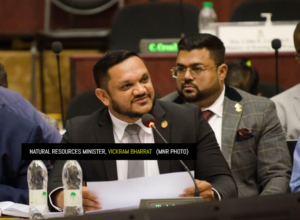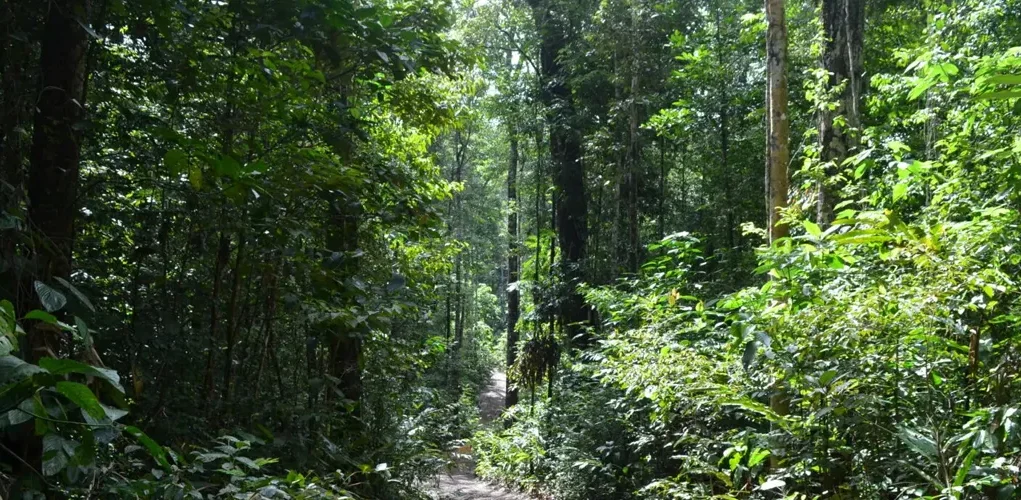In a compelling address at the United Nations (UN) Forest Forum last week, Minister of Natural Resources, Vickram Bharrat highlighted the urgent need for innovative economic incentives to preserve global forest resources, particularly in tropical regions. Bharrat’s speech emphasized the importance of rethinking traditional approaches to economic growth and resource management, calling for a shift that values forests more for their ecological benefits than for their exploitable resources.
Central to Bharrat’s message was the need for a global shift in how the value of forests is perceived. He argued that the traditional view of forested land as merely a resource for agriculture, mining, or infrastructure development must be reexamined. “Bluntly speaking, forested land cleared for agriculture, mining, or infrastructure development has historically been seen as valuable for economic growth. That is how most OECD member states accumulated wealth and generated opportunity in their early years of development. It is also why many OECD member states have depleted so much of their forest resources,” Bharrat asserted.
This perspective, he argued, is outdated and detrimental, especially for tropical countries whose forests play a critical role in global ecological health. Bharrat stressed that the global community must recognize the immense value of ecosystem services provided by forests, which are not currently adequately reflected within the global financial system. “The entire world benefits from the ecosystem services provided by forests, yet these benefits are not adequately valued within the global financial system,” he noted.
Bharrat also detailed Guyana’s approach to creating new financial incentives that promote forest conservation. Since 2008, he said Guyana has pursued a market-based model that has successfully sustained one of the world’s lowest deforestation rates. “For Guyana’s part, we have been following a market-based model we first set out in 2008. Over the 15+ years since, we have managed to sustain – along with our Suriname and Gabon – the world’s lowest deforestation rate,” Bharrat explained.
Guyana’s forests, covering an area the size of England and Scotland combined, store 19.5 gigatons of carbon and remove 154 million tonnes from the atmosphere annually. This significant contribution to planetary cooling and biodiversity services has been recognized through various international incentives. Guyana’s efforts began with a bilateral agreement with Norway, earning US$254 million, and have since evolved into a fully market-based mechanism integrated with carbon markets, securing deals worth over US$750 million.
“Every dollar we receive is invested in community development and our national Low Carbon Development Strategy. Communities self-manage 15% of the funds, while at a national level, we are investing in one of the biggest climate adaptation programs in our country’s history,” Bharrat highlighted. He said this model not only supports forest conservation but also fosters community development and national climate adaptation initiatives.
Bharrat also emphasized the need for increased South-South cooperation and peer-to-peer exchange of information. He called for more practical measures to facilitate the sharing of experiences and strategies among forest-rich countries. “Too often, there is not enough south-south, peer-to-peer exchange of information, so we would like to see more,” he said, expressing a willingness to share Guyana’s experiences and learn from others.
Notably, the Vice President, Dr. Bharrat Jagdeo during his customary weekly press conferences commended the Minister on his address as it highlighted how the global community can work towards a future where forests are preserved not just as natural resources but as vital components of the planet’s ecological balance.











